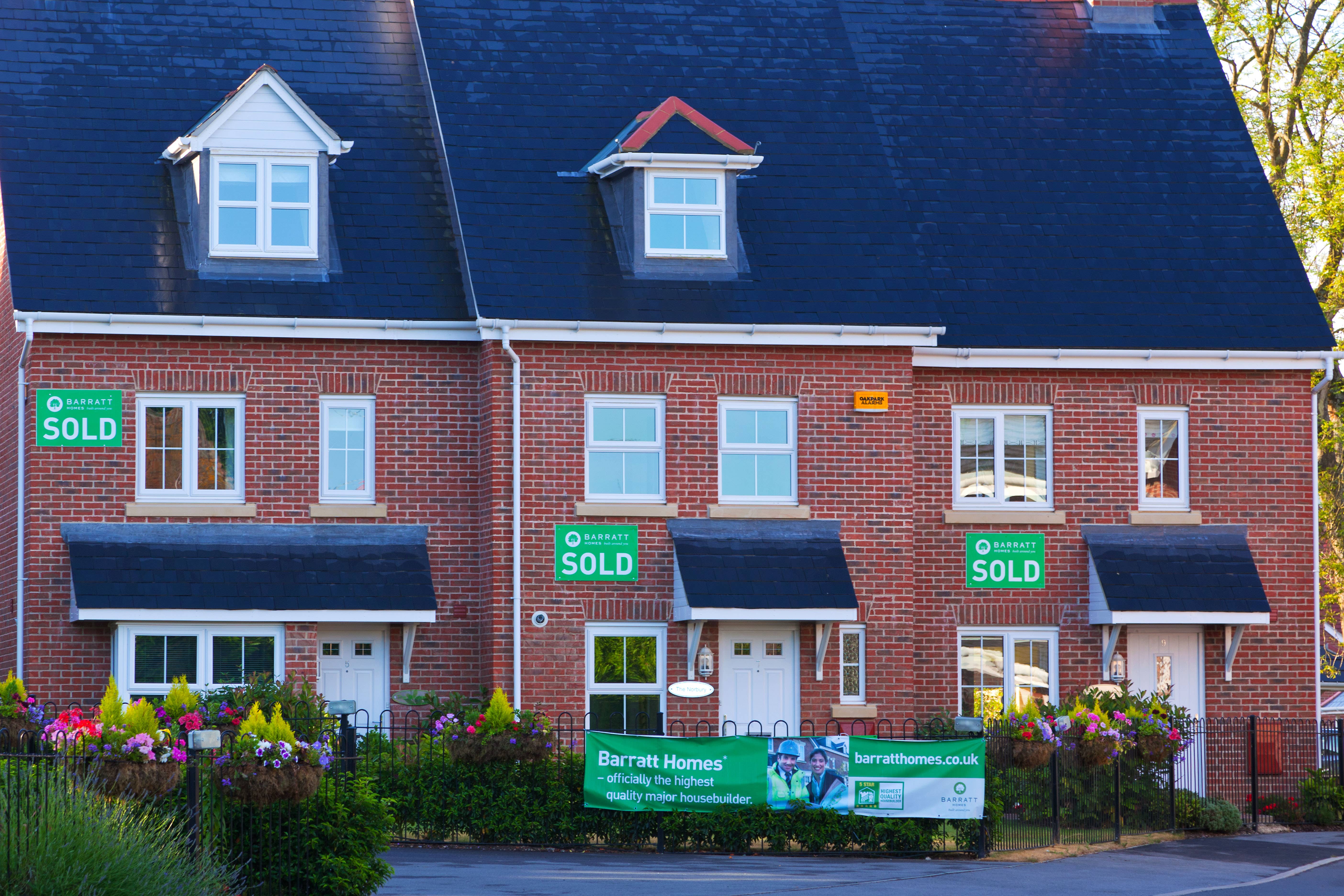Barratt profits crumble as high mortgage rates and inflation hit housebuilding
The UK’s biggest housebuilder expects completions to fall again this year, but hailed Government planning reforms as a boost to the industry.

Your support helps us to tell the story
From reproductive rights to climate change to Big Tech, The Independent is on the ground when the story is developing. Whether it's investigating the financials of Elon Musk's pro-Trump PAC or producing our latest documentary, 'The A Word', which shines a light on the American women fighting for reproductive rights, we know how important it is to parse out the facts from the messaging.
At such a critical moment in US history, we need reporters on the ground. Your donation allows us to keep sending journalists to speak to both sides of the story.
The Independent is trusted by Americans across the entire political spectrum. And unlike many other quality news outlets, we choose not to lock Americans out of our reporting and analysis with paywalls. We believe quality journalism should be available to everyone, paid for by those who can afford it.
Your support makes all the difference.Barratt Developments reported a sharp fall in profit and home completions last year, as it hailed the Labour Government’s planning reforms as “one of the key levers” to boost housebuilding.
Profit plunged 57% to £385 million, while the builder confirmed its previously reported figure of 14,004 home completions for the year ending June 30.
Turnover also fell 22% to £4.17 billion, as the company blamed a “challenging” backdrop in which high interest rates have depressed the housing market, while inflation pushed up costs for builders.
It said the collapse in profit was down to “lower home completions and average selling prices, reduced margin due to site-based fixed cost levels and build cost inflation”.
Barrett, which is Britain’s biggest housebuilder, expects completions to fall further this coming year, with guidance coming in between 13,000 and 13,500.
That figure is then expected to pick up in the following financial year.
The company said its balance sheet remains strong, with a net cash position of £868.5 million, down from £1.07 billion last year.
Barratt’s takeover of fellow housebuilder Redrow remains on ice while it continues to seek a competition licence for the deal, it said.
Chief executive David Thomas said: “We are pleased to have delivered total home completions at the upper end of our expectations for the year, despite the challenging backdrop.
“I am grateful to our skilled and dedicated teams of employees, sub-contractors and suppliers for continuing to deliver high-quality homes that people want to live in.
We welcome the Government’s proposed reforms of the planning system as one of the key levers to increase housebuilding, drive economic growth and tackle the chronic undersupply of high-quality, sustainable homes
“We were delighted to complete the acquisition of Redrow plc in August and are now working constructively with the CMA (Competition and Markets Authority) to finalise competition clearance so that we can begin the integration process.
“Whilst demand continues to be sensitive to mortgage affordability, and reduced land buying activity during the past two years has had a near-term impact on the number of outlets we are operating from, we are well-positioned to meet the strong underlying demand for new homes of all tenures in the UK.
“We welcome the Government’s proposed reforms of the planning system as one of the key levers to increase housebuilding, drive economic growth and tackle the chronic undersupply of high-quality, sustainable homes.”
Chancellor Rachel Reeves has said the Government will restore mandatory housebuilding targets for local authorities as part of the drive to build 1.5 million homes over five years, which is expected to help builders.
Richard Hunter, head of markets at interactive investor, said: “The group has to hope that this also marks an inflection point.
“It has confidence in its future prospects, which should be given fresh impetus by the acquisition of Redrow, a deal which is now all but over the line.”
He added: “The sector has also recently received a boost from the new Government’s pledge to reform the red tape of planning rules, which has been a thorn in the side for the industry in recent times.
“This is in addition to further changes in policy to drive housebuilding targets and support the sector in delivering these homes which, given the nation’s obsession with house ownership and a longstanding shortage of supply, could lead to an improved backdrop.”